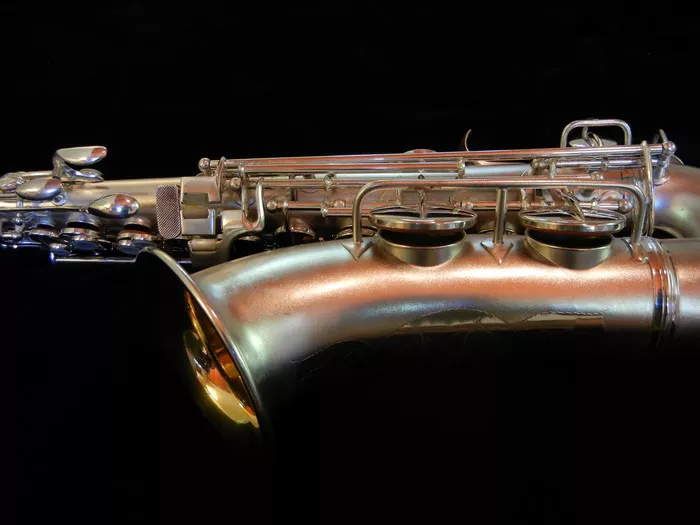When the soulful melodies of blues music fill the air, the saxophone takes center stage, evoking emotions that resonate with listeners on a profound level. The saxophone’s expressive capabilities make it a quintessential instrument for blues musicians to pour their hearts into every note. If you’re a budding blues artist or an enthusiast seeking to capture the essence of this genre, the question arises: “Which saxophone is best for blues?” In this article, we embark on a musical journey to explore the different types of saxophones and identify the one that resonates most harmoniously with the blues.
The charm of the saxophone
The saxophone exudes a timeless charm that transcends genres and eras. With its seamless blend of soulful warmth and dynamic versatility, it’s capable of expressing a vast spectrum of emotions. Its dulcet tones can evoke both melancholy and jubilation, making it a fixture in jazz, classical, and contemporary music. The instrument’s curved form and gleaming brass or silver body add to its visual allure. The saxophone’s ability to mimic the human voice, its smooth slides and vibrant bursts, intertwine to create a unique magnetism. This captivating allure has firmly etched the saxophone into the heart of musical expression.
What is Blues?
Blues is a deeply emotive and soulful musical genre rooted in African American history and culture. Originating in the late 19th century, it fuses African rhythms, field hollers, and spirituals with Western musical elements. Characterized by its distinct 12-bar chord progression, expressive vocals, and often melancholic lyrics, blues conveys themes of hardship, love, and resilience. It served as a foundation for numerous genres, notably jazz and rock ‘n’ roll. Blues music, with its raw and honest portrayal of human experience, remains a potent artistic form that continues to resonate, connecting people through shared emotions and the power of its sound.
Who are the famous saxophone players?
Several renowned saxophone players have left an indelible mark on the world of music. Some of the most famous ones include:
1. Charlie Parker:
An iconic figure in jazz, Parker, known as “Bird,” was a pioneering alto saxophonist and composer who played a key role in the development of bebop.
2. John Coltrane:
A legendary tenor saxophonist, Coltrane’s innovative approach to improvisation and his spiritual quest led to the creation of avant-garde jazz and his influential “sheets of sound” technique.
3. Stan Getz:
A prominent tenor saxophonist, Getz was celebrated for his smooth, lyrical playing style, contributing to the popularity of bossa nova music.
4. Sonny Rollins:
A tenor saxophonist with a distinctive sound, Rollins’ improvisational prowess and unique phrasing set him apart as one of the most important figures in post-bop and free jazz.
These musicians, among others, have contributed significantly to the saxophone’s prominence in various genres and its lasting impact on the world of music.
The Best Saxophone for Blues
Selecting the best saxophone for blues depends on individual preferences and playing style. However, certain saxophones are commonly favored for their tonal characteristics and versatility in the blues genre:
1. Tenor Saxophone:
The tenor sax is a popular choice for blues due to its warm and expressive sound. It sits in a range that’s well-suited for the genre’s emotional and soulful melodies.
2. Vintage Instruments:
Vintage saxophones from reputable brands like Selmer, Conn, and King are often favored for their rich, resonant tones that align well with the blues aesthetic.
3. Selmer Mark VI:
The Selmer Mark VI is a legendary saxophone known for its versatility and excellent intonation. Many blues saxophonists appreciate its balanced sound for both lead and solo work.
4. Yamaha Custom Z:
Yamaha saxophones, including the Custom Z series, offer modern playability with a classic sound. They are highly regarded for their consistency and reliability.
5. Yanagisawa T901:
Yanagisawa saxophones are praised for their craftsmanship and consistent tone. The T901 model, in particular, is valued for its blend of classic design and contemporary features.
Ultimately, the best saxophone for blues is one that suits your playing style, feels comfortable, and produces the tone you desire. It’s recommended to try different saxophones and consult with experienced players or music professionals to find the instrument that resonates with your artistic vision for playing the blues.
Elevating Your Blues with the Right Saxophone
Blues music hinges on emotional resonance, and selecting the right saxophone can amplify this connection. Both the alto and tenor saxophones offer qualities that complement the blues’ soul-stirring melodies.
The type of saxophone you choose can influence your playing techniques. The alto saxophone’s agility can enhance blues improvisation, while the tenor saxophone’s warm tones lend themselves to soulful, drawn-out notes.
See Also: Saxophone Mouthpiece Numbers: What is The Significance?
Conclusion
In the world of blues music, where every note carries a piece of the artist’s soul, choosing the right saxophone is a decision that shapes the essence of your musical expression. The alto saxophone’s versatility and the tenor saxophone’s emotive depth each offer distinct avenues for capturing the essence of blues. As you embark on your journey, remember that the best saxophone for blues ultimately aligns with your unique voice and the emotions you seek to convey. Whether it’s the alto’s bright versatility or the tenor’s smoky warmth, the saxophone’s melodic embrace will undoubtedly help you paint your blues stories with the hues of your heart.


